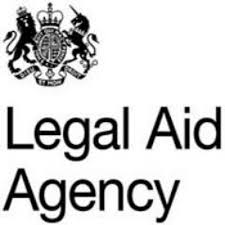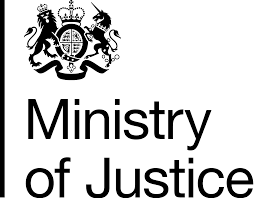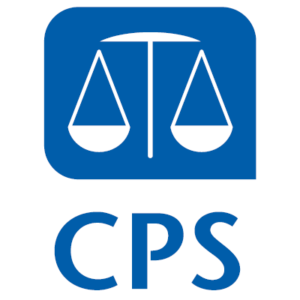Monthly Archives: October 2016
A Peer Review is a requirement of our contract with the Legal Aid Agency. A random selection of files are made. A reviewer will examine how we have dealt with client matters across all of our offices.  This process is purely on the basis of the information recorded by our lawyers on the files supplied.
This process is purely on the basis of the information recorded by our lawyers on the files supplied.
Our clients will know that we have worked very hard to ensure consistency of approach whether you see a solicitor at Nottingham, Derby, Chesterfield, Mansfield or Ilkeston. We are pleased to be able to report that the reviewer agreed that we have been successful.
Following the random sampling, a number of positive aspects of our service were identified by the independent reviewer.
“Good Outcomes for Clients”
The adjudicator found evidence that we are “securing good outcomes for clients in all categories of work” – at the police station, Magistrates’ and Crown Courts. These were evidenced by clients being refused charge, having the benefit of submissions of no case to answer or receiving sentences that were a significant departure from the published guidelines.
“Timely and Realistic Advice”
The reviewer noted that as a firm we ensured that our clients are “given timely and realistic advice about the strength of the evidence against them”. We showed that this advice allowed clients to secure the maximum available credit for early guilty pleas. Indications of culpability for lesser charges were given early, again maintaining credit when the Crown finally accepted the account given by our client.
“Pro-active”
“Pro-active steps were taken” to seek full instructions early in cases to allow the early drafting of, for example, a basis of plea, that was agreed with the prosecution prior to the first Crown Court hearing. This allowed the client to be sentenced in a manner favourable to him.
“Readily Understandable Advice”
Our “clients were given clear and readily understandable advice about the strengths and weaknesses of the prosecution and defence cases and their prospects at trial”. Our clients “were able to make fully informed decisions about their case”, with the advice given in plain English and clear, readily understandable terms.
“Actively Pursued Disclosure”
These strengths were combined with our “pro-active approach to the preparation and management of cases”. It was observed that we “actively pursued outstanding disclosure issues” on behalf of clients, whether cases were at the Magistrates’ or Crown Court. The strengths or weaknesses of the prosecution or defence cases were kept under constant review.
“Client Focussed Approach”
Our approach to managing client appointments, the provision of advice in person and in writing and our regular updates on cased “increased the prospects of our clients engaging in the preparation of their cases and provided further evidence of our client focussed approach”.
Contact Us

VHS Fletchers have offices across the East Midlands. We offer representation in criminal cases from the police station through to the Court of Appeal. Independent reviews of the quality of our advice such as these can give you confidence in instructing this firm to represent you.
Please find you nearest office here, or email us here. We look forward to hearing from you.
Monthly Archives: October 2016
On 31 October 2016 GPS electronic monitoring by tagging will be piloted in Nottinghamshire in cases involving court bail, community orders, suspended sentence orders and parole cases involving IPP and lifers. This is part of 8 pilot in eight separate criminal justice areas for different types of case.
The pilot will aim to tag individuals who would otherwise be:
- refused bail and remanded in custody
- subject to a custodial sentence
- refused early release or re-release
- recalled to prison
- refused parole
The scheme is to run for a period of 12 months, with no additional tags to be implemented after that date, but those with existing tags will be able to have the benefit for a further 6 months from that date.
As currently, the aim will be to fit the tag within 24 hours of a decision being made. A home beacon and charging device will be provided at the approved address. The Case Management System receives an hourly update if there is compliance, but will receive an immediate alert where the wearer breaches a monitored condition, tampers with or removes the tag, fails to charge it or disconnects the home beacon.
Bail
In bail cases an exclusion or inclusion zone may be included in bail conditions that will be monitored by the tag if the zone is within the pilot area. The tag is not a free-standing condition but must be used to monitor a bail condition. The monitoring is imposed as a direct alternative to a custodial remand.
Sentences
For sentencing cases the GPS tag will again monitor exclusion or inclusion zones, again in cases where the community order or custodial thresholds are met.
Parole
In parole case the consideration and recommendation fro GPS tagging should come from the NPS as part of their OM report.
Conditions
In all cases the conditions that are being monitored by GPS should be unambiguous. For example, any geographical zones should be marked on a map. Other conditions such as attendance at work or on a programme should again be clearly set out. 
The GPS signal may be temporarily lost if wearer is in an underground car park, a train or other metallic environment, high or larger buildings such as shopping centres or heavily built up areas with lots of tall buildings.
Any such loss of signal will be monitored, and the wearer can be alerted to contact the monitoring centre to address any concerns.
Suitability
It will not be suitable for people of no fixed abode, or in shared accommodation such as blocks of flats or those with chronic mental health difficulties who would not be able to comply with conditions.
The tag is waterproof for up to an hour and shockproof, but not compatible with contact sports such as rugby, football or kick boxing(!).
The pilot will enable conclusions to be drawn as to how the GPS Electronic Monitoring by tagging affected the behaviour of tagged individuals, assess effectiveness as between those tagged and not tagged, and assess the costs of the necessary resources.
Contact Us
If you wish to discuss your eligibility then please contact your nearest office.
Monthly Archives: October 2016
Nottingham based senior Crown Court litigator Laura Clarson worked with counsel Dean Kershaw of No 5 Chambers to avoid a firearm minimum sentence of five years.
The Allegation
Laura’s client was stopped in customs at Birmingham airport. He had arrived from Turkey where he had been working for a period of a few months. His luggage was searched and he was found to be in possession of 3 tasers or stun guns. These were disguised as torches.
As a result he was charged with possession of three disguised firearm under Section 5(1A)(a) of the Firearms Act 1968. This meant that he was liable for a minimum sentence of five years custody. This sentence could only be avoided if ‘exceptional circumstances’ applied.
Our client maintained throughout that he bought them from a market in Istanbul believing them to be torches. He intended to keep one and give the others as gifts. He did not appreciate they also operated as stun guns. Click here to see the items:
Laura gave the difficult advice to the client, that as he knew that he had the items he was guilty of the offence. His lack of knowledge as to how the items operated did not provide a defence. He sought a second opinion from another firm of solicitors – in their rush to be optimistic, and perhaps tell him what he wanted to hear, the advice was legally incorrect.
Exceptional Circumstances
At the first Crown Court hearing our client pleaded guilty but on the basis set out to the police in interview. The case was adjourned for a hearing as to whether he could be sentenced on that basis. Counsel provided continuity of representation, despite being involved in a trial at the time.
Evidence was given by the client and submissions were made by Counsel. Having heard from our client, the Judge was able to sentence him on a basis favourable to him. Exceptional circumstances were said to apply, and in combination with extensive mitigation the Judge was able to impose a free-standing suspended sentence rather than the firearm minimum sentence of five years.
Laura’s client was relieved, being able to keep his employment and a roof over his head!
Contact Laura
Sometimes we have to give you difficult advice. Even when we do that, you can be confident that we will continue to fight for the best outcome possible in your case. If you wish to discuss a case involving a firearm minimum sentence or any other case with Laura please telephone 0115 9599550 or email her here.
She will provide you with advice on every aspect of your case, from funding, through to evidence, and likely outcome so that you can make the best choices.
Monthly Archives: October 2016
Nottingham based senior Crown Court Litigator Lisa Sawyer worked successfully with counsel Vanessa Marshall from 7 Bedford Row Chambers to ensure not guilty verdicts before Nottingham Crown Court for a Polish speaker.
The Allegations
He faced allegations of serious sexual offences due for trial during the week of 10 October.
He met the complainant on a Polish chat site. After two weeks of contact, an arrangement was made for them to meet in Nottinghamshire. During that meeting it was alleged that he had sexual intercourse with her against her will.
The complainant, on returning to her address, was distressed and made an immediate complaint of sexual assault. A medical examination confirmed an injury consistent with her allegation.
Lisa’s client provided a different account to the police and to us. He maintained that as conversations on the chat site developed a relationship developed too. The chat had in part been about sex. There had been an agreement by the complainant that they could have sex.
He stated that all sexual contact was consensual, and that the complainant was upset because they had had an argument.
Requests for Disclosure
Extensive enquiries, directed by counsel and building on Lisa’s earlier enquiries, were made of the prosecution relating to the medical evidence, telephone evidence and the complainant’s background. Clarification was sought that the injuries recorded were consistent with our client’s account. A request was made that chat room conversations be put in a clear format. Additional disclosure of messaging on phones between the complainant and our client was requested. Statements gave rise to requests relating to any social services involvement. More detail was required from officers who took first complaints.
 It seemed likely that the prosecution had not considered all of this material in any detail. This conclusion was supported by the fact that following the request, and upon review, the prosecution offered no evidence prior to trial. Lisa’s client had the benefit of not guilty verdicts.
It seemed likely that the prosecution had not considered all of this material in any detail. This conclusion was supported by the fact that following the request, and upon review, the prosecution offered no evidence prior to trial. Lisa’s client had the benefit of not guilty verdicts.
The case load that Lisa deals with is almost exclusively cases like this that are complex and extremely serious in nature. If you face allegations and wish to speak to Lisa then please contact her on 0115 9599550 or email her here.
She will provide you with advice about funding and choice of advocate, whether that is in-house counsel or solicitor advocate, or from outside chambers. She will dedicate the time needed to ensure that your case is fully prepared, whether it be for sentence, trial or appeal.
Contact Us If You Are A Polish Speaker
We have a dedicated contact number for those who require a Polish speaker as first point of contact. Please call us on 07494 142 041. More information can be found here:
information-for-polish-speakers
Please contact us.
Monthly Archives: October 2016
Senior Crown Court Litigator Laura Clarson recently worked with Nick Jones, a barrister from 5 St Andrew’s Hill Chambers, at Nottingham Crown Court to secure an acquittal for her client.
Serious Violent Offence at Nottingham Crown Court
Laura’s client was charged with another accused of causing grievous bodily harm with intent. The allegation was that the complainant had been assaulted with a weapon, probably a bat, as a result of his unwanted attentions in relation to our client’s mother.
The injuries involved fractures to the complainant’s face. Blood had been lost by the complainant. It was the prosecution’s contention that this blood evidence could make a jury sure that Laura’s client had been one of those who took part in the attack.
A favourable outcome to the case was extremely important to her client, not least because the Sentencing Guidelines for this offence suggested that if convicted he could expect to receive a sentence that would start at 6 years in prison.
The case required careful preparation. The witness had no recollection of the incident which led to his injuries. They were of such severity, however, that he must have been subject to a serious assault. Although Laura’s client was now asserting that he had not taken part in the assault, he had not told the truth to the police during the early stages of the investigation.
Expert Evidence
The Crown maintained that it’s expert analysis of the blood evidence was decisive and claimed that if would offer the jury no alternative but to conclude that Laura’s client had been involved.
As soon as the blood evidence was disclosed, Laura instructed a respected expert, Gillian Leak of Principal Forensic Service to provide a report on behalf of her client.
Despite early service of these conclusions and the seniority and experience of our expert the Crown proved intransigent in relation to the case. There was resistance to an early conference between experts to find points of common ground. It transpired during the course of these negotiations that the Crown expert had not been given the entirety of the Crown case in order to further review his findings.
Although it was clear to Laura in March 2016 that the Crown’s view of the blood evidence would be unsustainable at trial, the prosecution continued nonetheless. Problems in the complainant’s case were highlighted during cross-examination. Most importantly, the Crown expert conceded many points in our client’s favour during questioning.
 Belatedly, the Crown saw reason dropped the case against Laura’s client half way through the trial at Nottingham Crown Court and he was found not guilty. This was six months after Laura had served the evidence and made representations about the wisdom of the prosecution.
Belatedly, the Crown saw reason dropped the case against Laura’s client half way through the trial at Nottingham Crown Court and he was found not guilty. This was six months after Laura had served the evidence and made representations about the wisdom of the prosecution.
Contact Us
Crown Court cases are often complicated and steps will need to be taken to challenge what at first glance appears to be conclusive evidence. Please contact Laura if you have a case before Nottingham Crown Court on 0115 9599550 or email her here. Alternatively, find your closest office here.
Monthly Archives: October 2016
Nottingham based crime and regulatory lawyer Martin Hadley recently represented a pharmacy technician who was before the Investigating Committee of the General Pharmaceutical Council.
At the client’s request we had taken over his case from another firm of solicitors who had attempted to deal with his case to conclusion during the investigation stage but had failed to do so. As a result his case had moved on to the formal disciplinary process before the Committee. In the referral, a recommendation had been made that Martin’s client receive a warning.
Martin’s client faced allegations that:
• He had received a formal police caution for a serious criminal offence; and,
• His fitness to practise was impaired by reason of the caution.
Martin requested a copy of the file from the General Pharmaceutical Council and reviewed the papers generated in the investigation stage by the former solicitors.
Taking advantage of current technology, Martin undertook a lengthy video conference with the client to seek his full instructions. During that meeting Martin was able to give full advice on the factual basis of the concessions to be made and gain full details of the mitigating circumstances and advise upon potential outcomes.
On the basis of this meeting and consideration of the papers Martin was able to draft a persuasive letter of representations. The client was then able to approve the letter. It was submitted in good time for the hearing.
As a result of Martin’s representations the the Committee reached the conclusion “take no further action” having taken into account the nature of the caution and the mitigation that could be offered.
Martin’s client was very happy with the result, particularly bearing in mind that the Council’s original recommendation.
Contact Us
 We know that such referrals can have serious effect on a person working in this sector. The Investigating Committee has the option of referring the case to the Fitness to Practice Committee. It has additional powers of its own, including giving a recordable warning, advice, agreeing undertakes or recommending criminal prosecutions.
We know that such referrals can have serious effect on a person working in this sector. The Investigating Committee has the option of referring the case to the Fitness to Practice Committee. It has additional powers of its own, including giving a recordable warning, advice, agreeing undertakes or recommending criminal prosecutions.
Neither the Investigation Stage nor the Investigating Committee stage can be taken lightly. Decisions made early in a case can affect the entirety of proceedings. As a result, it is extremely important to seek expert advice straight away.
If you are a pharmacist or pharmacy technician and face investigation then please contact Martin Hadley immediately on 0115 9599550 or email him here. He will give you information on our competitive private fees and explain what helpful steps can be taken immediately on your behalf.




